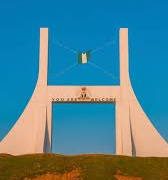Senator Ali Ndume has expressed concerns over the rising debt profile under President Bola Tinubu’s administration, questioning the rationale and transparency behind borrowings totalling approximately $9.45 billion (about N13 trillion) since June 2023.
Speaking during an interview on Arise News on Monday evening, the Borno South senator emphasised that he was not opposed to borrowing in principle but stressed that loans must be for “tangible, accountable” projects.
“Let me first of all say that I’m not against borrowing,” Ndume said.
He said: “Even the greatest countries in the world, America, Japan, China, all are big borrowers. But they borrow for physical, tangible, and accountable projects that you spread and pay over time.”
His concern, however, is that Nigeria’s recent loans have not been directed towards such projects.
He reeled out a list of recent loans, saying many were for ambiguous or intangible initiatives that do not impact the lives of everyday Nigerians.
“In June 2023, $500 million was borrowed for a women’s program to scale up what they call MPWPLC. Can Nigerians see it? Where are the women?” he asked. “On the same day, $800 million was borrowed to cushion the effect of high petrol prices after fuel subsidy removal.”
Ndume continued: “In September 2023, $700 million was borrowed again for adolescent girls’ learning and empowerment. Then, in December, $750 million for renewable energy scale-up. In June 2024, $1.5 billion was borrowed to support Nigeria’s reform for economic stabilisation. That one sounds very spurious, I have to be honest.”
He questioned the visibility and impact of these loans, suggesting that they have yet to translate into meaningful benefits for Nigerians.
“Whenever you are doing something, if it is true, somebody will come out to say thank you,” Ndume said in response to claims that the funds were used for cash transfers to poor Nigerians. “Where are the poor people?” he asked.
Ndume also expressed scepticism about the National Assembly’s involvement in approving the loans. While acknowledging that the medium-term expenditure framework (MTEF) is typically brought before the legislature, he argued that it is not a blanket endorsement.
“The bulk of it passes through, but you don’t pass the bulk. You pass the itemised,” he said. “Every item is supposed to be discussed before you engage in it. That is the National Assembly’s approval.”
Pressed further, he suggested that some of the loans may have bypassed legislative scrutiny altogether.
“Not to my knowledge,” he said when asked if all the loans were itemised and approved. “Because such amounts must go through due legislative process. Even if approved in principle through the MTEF, every borrowing must be itemized, debated, and justified.”
He warned that the nature of the loans, mostly non-infrastructural and intangible, would leave future generations saddled with decades of repayments.
“These are items that have nothing to do with infrastructure,” Ndume said. “I would have supported, for example, that the country is borrowing even more than that to build our infrastructures, to build railways. But these things? They are not tangible things that you can hold on to, and these are things that you pay for in the next 40, 50 years.”
Ndume’s comments come amid growing public concern about Nigeria’s rising debt and the lack of transparency in how funds are utilized.
According to data released by the Debt Management Office (DMO) last Friday, the country’s debt stock soared 48.6 per cent to N144.6 trillion as of the end of 2024 compared to N97.3 trillion in 2023. [BusinessDay]


































































